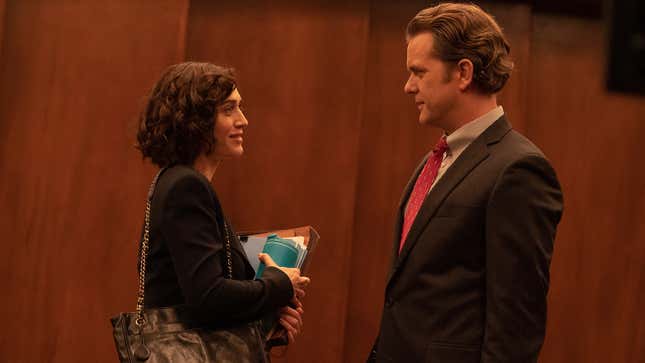The ‘Fatal Attraction’ Series Fails to Show Any Actual Attraction Between Its Leads
The erotic thriller dies another day in this padded, dull adaptation of the 1987 classic for Paramount+.
EntertainmentTV

Currently, there seems to be a voracious appetite for an erotic thriller revival. This month, Criterion presented a series of 16 examples of the noirish subgenre that exposed (among things) the dangers of sex and monogamy-deviation, and which, not coincidentally, spanned the “plague years” of the AIDS epidemic. Last year, the popular podcast You Must Remember This devoted a 12-episode run to the form and Vulture published an erotic thriller package. Also last year was Deep Water, a woebegone team-up of now-exes Ben Affleck and Ana de Armas. That was directed by Adrian Lyne, who made Fatal Attraction, the 1987 phenomenon that proved the subgenre had legs after 1980’s Dressed to Kill and 1981’s Body Heat kicked it off.
Now that Fatal Attraction has been spun into an eight-episode series, premiering Sunday on Paramount+, it is abundantly clear that what people are craving is a meal from a restaurant long closed. The erotic thriller cannot work in 2023 like it did in 1987. We want more from our movies now than scantly clad parables with barely there characters and heavy-handed messages. Erotic thrillers balanced their strident lack of political correctness with pulp morality about the dangers of sex and infidelity. The entire point of many of them—Fatal Attraction, included—was to examine how unremarkable people survive extraordinary circumstances. Happy endings meant returning to the normative and fading back into the background with one’s sense of family in tact. The 1987 Fatal Attraction works because Michael Douglas’ Dan Gallagher is just some white dude whose world is jolted by an affair with Alex Forrest (an electric Glenn Close).
-

-

-

-

-

-

-

-

-

-

-

-

-

-

-

-

-

-

-

-

-

-

-

-

-

-

-

-

-

-

-

-

-

-

-

-

-

-

-

-









































